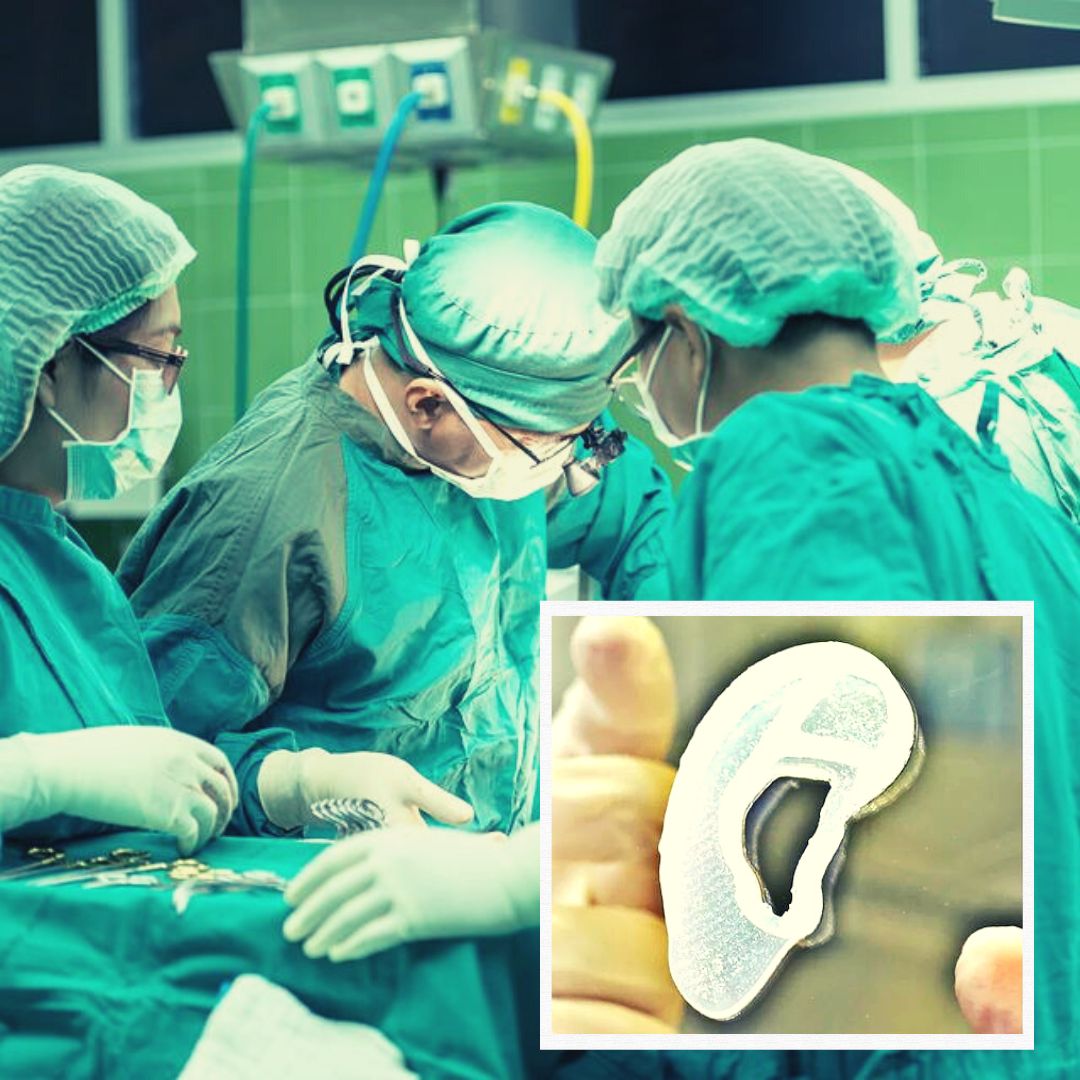
Image Credits: India Today, Pixabay
Medical Breakthrough! Woman Gets First-Ever 3D Printed Ear Made From Her Own Tissue
Writer: Tashafi Nazir
For most people, journalism sounds hectic and chaotic. For her, it's a passion she has been chasing for years. With an extensive media background, Tashafi believes in putting efforts on presenting a simple incident in the most interesting way.
Others/World, 8 Jun 2022 8:30 AM GMT
Editor : Shiva Chaudhary |
A post-graduate in Journalism and Mass Communication with relevant skills, specialising in content editing & writing. I believe in the precise dissemination of information based on facts to the public.
Creatives : Tashafi Nazir
For most people, journalism sounds hectic and chaotic. For her, it's a passion she has been chasing for years. With an extensive media background, Tashafi believes in putting efforts on presenting a simple incident in the most interesting way.
The procedure is hoped to be used to treat patients with microtia, a rare congenital condition in which one or both outer ears are absent or incompletely formed.
In a groundbreaking reconstructive procedure, a 20-year-old woman in the United States, born with a small and misshapen right ear, has become the first person in the world to undergo a successful ear transplant with 3D printed technology.
The first of its kind clinical trial was conducted on Mexico's Alexa by 3DBio Therapeutics - a regenerative medicine company in Queens that created an ear transplant for the woman made from living cells. The procedure is hoped to be used to treat patients with microtia, a rare congenital condition in which one or both outer ears are absent or incompletely formed.
3DBio Therapeutics stated that the ear was engineered to emulate the patient's other ear and will continue to regenerate cartilage, making it look and feel similar to a natural ear, NDTV reported.
Procedure Led By Dr Arturo Bonilla
Further, the company said that the 3D bio-printed living tissue ear implant was constructed using AuriNovo, a "groundbreaking" investigational combination product for reconstructing the outer ear in patients suffering from microtia. Reportedly, the procedure was led by an ear reconstructive surgeon and the founder of the Microtia-Congenital Ear Deformity Institute in San Antonio, Texas Dr Arturo Bonilla.
"As a physician who has treated thousands of kids with microtia from across the country and worldwide, I am inspired by what this technology may mean for microtia patients and their families," Dr Bonilla said.
"This study will allow us to investigate this new procedure's safety and aesthetic properties for ear reconstruction using the patient's own cartilage cells," he added.
The medico said that the approach could replace current procedures for reconstruction of the outer ear that involve taking cartilage from persons' ribs, a more invasive procedure, or the use of porous polyethene (PPE) implants, with ears reconstructed using the new implant thought to be more flexible. He hoped that a procedure like this would help the growth of "confidence" and "self-esteem" of microtia patients.
Historic Moment
Dr Daniel Cohen, 3DBio's chief executive, said the real-world application of the technology was "a truly historic moment", adding that he hoped the clinical trial could have potential beyond microtia.
3DBio announced the results of the patient's reconstructive surgery in a press release. Citing proprietary concerns, the company has not publicly disclosed the technical details of the procedure, making it more challenging for outside experts to evaluate. 3DBio stated that federal regulators had reviewed the trial design and set strict manufacturing standards, and the data would be published in a journal when the study was complete, The New York Times reported.
"It's a big deal," said Adam Feinberg, a professor of biomedical engineering and materials science and engineering at Carnegie Mellon University. He is the co-founder of FluidForm, a regenerative medicine company that also uses 3-D printing. "It reveals this technology is not an 'if' anymore, but a 'when,'" he added.
The clinical trial, including 11 patients, is ongoing and it's possible that the transplants could fail or bring health complications. The study officially began in August 2021. As per doctors and company officials, since the cells originated from the patient's tissue, the new ear is not likely to be rejected by the body.
Second And Larger Trial
Pending the outcome of this trial, researchers will perform a second and larger trial before seeking FDA approval of AuriNovo, which has also been granted orphan drug and rare pediatric disease designations, meaning that it will receive a priority review when ready, CBS News reported.
According to the Centers for Disease Control and Prevention, it's difficult to predict how many individuals are impacted because of the range of the disease varies, but estimates show that the congenital disability affects nearly one in every 2,000 to 10,000 people in the US. The cause in most patients is unknown, although some cases are caused by genetic changes or by using isotretinoin or Accutane medication, during pregnancy.
3DBio's success, seven years in the making, is one of many recent breakthroughs in the quest to improve organ and tissue transplants. In January 2022, doctors in Maryland transplanted a genetically modified pig's heart into a 57-year-old patient with heart disease, extending his lifespan by two months. Researchers are also developing techniques to extend the life of donor organs so they do not go to waste.
Also Read: Over 70% Of Govt Schools Made Disabled-Friendly In Last 6 Years Across India: Ministry Data
 All section
All section














